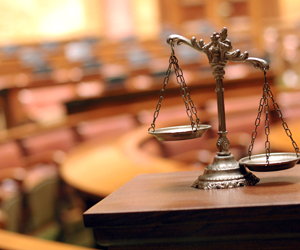 Jan. 11, 2016 – The trial judge in a “shaken baby” case did not commit any error when he excluded state lay witnesses that were not timely disclosed to the defense, even though the prosecutor disclosed the names before trial, a state appeals court has ruled.
Jan. 11, 2016 – The trial judge in a “shaken baby” case did not commit any error when he excluded state lay witnesses that were not timely disclosed to the defense, even though the prosecutor disclosed the names before trial, a state appeals court has ruled.
In 2012, the state charged Caroline Prieto with great bodily harm to a child, alleging the baby suffered a serious brain injury while in Prieto’s care. Prieto made a statutory demand for the disclosure of all witnesses the state intended to call at trial.
The court ordered the prosecution to disclose the list in two orders in 2013 and 2014, but the prosecution only disclosed one name, an expert that it intended to call. Three weeks before trial, Prieto moved to exclude all state witnesses besides the expert.
The trial court granted Prieto’s motion. Three days later, the prosecution filed a list with 12 lay witnesses and asked the court to reconsider. The prosecutor argued that the defense knew of the witnesses through discovery and Prieto would not be prejudiced if they were allowed to testify at trial. The trial court judge denied the request.
The state appealed and the appeals court put the jury trial on hold pending appeal. But in State v. Prieto, 2015AP279-CR (Dec. 30, 2015), a three-judge panel for the District II Court of Appeals upheld the lower court’s decision to exclude the state witnesses.
The panel noted that under Wisconsin criminal procedure laws, district attorneys must provide a list of witnesses “within a reasonable time before trial,” and judges can exclude witnesses “unless good cause is shown for failure to comply.”
The state argued that disclosing the list two weeks before trial was a reasonable amount of time and the trial court had the discretion to exclude witnesses, even if the prosecutor failed to show a good cause for failing to disclose the list sooner. That is, the state argued that excluding the witnesses for untimely disclosure was not mandatory.
“We need not resolve whether exclusion is discretionary or mandatory, however, as we determine that even if the exclusion of witnesses is discretionary … the court properly exercised its discretion,” wrote Appeals Court Judge Paul Reilly.
The panel said the prosecutor did not disclose the list within a reasonable amount of time before trial and failed to show good cause for the untimely disclosure. The panel also noted that the prosecution failed to comply with two court orders.
“If the district attorney’s office did not agree with the court’s scheduling orders and believed them to not provide for the listing of witnesses within a reasonable time before trial, it needed to show good cause for why it could not comply prior to the expiration of the time limits set in those orders,” Judge Reilly wrote.
Judge Reilly acknowledged that excluding witnesses may not allow the merits of the case to be fully tried, but refused the state’s request for the court to make an exception.
“[W]e cannot reconcile the State’s position with a criminal justice system that affords fairness to both the State and defendant,” Reilly wrote.
